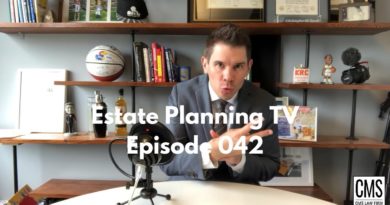Estate Planning for Single Seniors: What You Need to Know
Estate planning isn’t just for those with large families or massive fortunes. It’s a critical process for everyone, including single seniors who don’t have children. While the absence of direct heirs might make your situation unique, it also adds another layer of responsibility to ensure your wishes are honored.
In this blog, we’ll walk you through the key considerations for estate planning as a single senior without children.
Naming an Executor and/or Trustee
Without children to take on the role of estate administrator, you’ll need to be particularly thoughtful about who you choose. The executor or trustee will handle the distribution of your assets and ensure that your last wishes are carried out. Think about close friends, nieces, nephews, or even professional advisors who are trustworthy and capable.
Establish Powers of Attorney
Powers of attorney are vital tools in your estate planning toolkit. Since you don’t have children, identifying someone to act on your behalf if you become incapacitated is crucial. There are two main types you should consider:
1.) Durable Power of Attorney for Finances: This allows someone to manage your financial affairs if you’re unable to do so.
2.) Durable Power of Attorney for Health Care: This designates someone to make medical decisions for you if you can’t.
Living Will
A living will outlines your preferences for life-support utilization, and you can go through all the different types of life-support if you choose to do so. The document can also contain your comfort care medication and organ and tissue donation decisions.
Think About Asset Distribution
When you don’t have direct heirs like children, you have the freedom to be creative with asset distribution. Friends, distant relatives, or charitable organizations could be beneficiaries.
Setting up a trust can provide more control over your asset distribution. For example, you could set up a charitable remainder trust that pays out an annuity to a friend for life, with the remainder going to a charity.
Plan for Long-Term Care
Since Medicare doesn’t cover long-term care, you may need to think about Medicaid planning. Considering you have no children to rely on for support, long-term care planning becomes even more essential.
An irrevocable Medicaid trust can be an effective way to qualify for Medicaid while preserving your assets. You can receive distributions from the trust’s earnings while you’re living, but you would not be able to reach the principal. Just remember, you need to fund the trust at least five years before applying for Medicaid due to the look-back period.
Don’t Forget Your Pets
If you have pets, they can be appropriately provided for if you set up a pet trust. Should you pass away before the pet, the trustee that you name will follow your instructions and make sure that your pet is cared for in accordance with your wishes.
Utilize Technology for Documentation
Consider using secure digital platforms to store all your essential documents, like wills, trusts, and powers of attorney. Make sure your executor or trusted friend knows how to access these when needed. This provides an additional layer of security and ensures that your documents are readily available when needed.
Take Action Today!
Whether you are a single senior or not, action is required if you do not have a comprehensive estate plan in place. As you can see, there are many things to take into consideration, and we can help you make sure that all of your bases are covered.
You can send us a message to request a consultation at our Oklahoma City estate planning office, or we can be reached by phone at 405-843-6100. And if you are in the Tulsa area, our office there can be reached at 918-615-2700.
After helping his own family deal with a lengthy probate and the IRS following his father’s untimely death in a farm accident, Larry Parman made a decision to help families create effective estate plans designed to reduce taxes, minimize legal interference with the transfer of assets to one’s heirs, and protect his clients’ assets from predators and creditors.
Latest posts by Larry Parman, Attorney at Law (see all)
Story originally seen here






